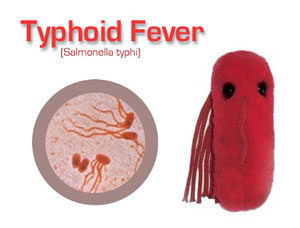 The meeting was a culmination of CHRA’s engagement with various civic society organizations and State actors following the typhoid outbreak in Harare which has so far claimed two lives since December 2016.
The meeting was a culmination of CHRA’s engagement with various civic society organizations and State actors following the typhoid outbreak in Harare which has so far claimed two lives since December 2016.
Various civic society organizations that included the Zimbabwe Association of Doctors for Human Rights (ZADHR), Chitungwiza Residents Trust (Chitrest), the Combined Harare Residents Association (CHRA), Vendors Initiative for Socio-Economic Transformation (VISET) and the Zimbabwe Lawyers for Human Rights (ZLHR) made presentations on the poor state of affairs in Harare.
The organizations challenged the Zimbabwe Human Rights Commission to act and prevent needless loss of lives arising from poor service delivery in Harare.
CHRA Chief Executive Officer, Mfundo Mlilo blamed erratic water supplies and poor waste management for the typhoid outbreak in Harare. He added that as a result of the allocation of housing stands on wetlands, residents had been exposed to flooding.
Mlilo said it was imperative for residents to stand up and hold the City of Harare to account.
“People have accepted that this is the norm and no one is taking about the deaths coming as a result of poor service delivery in Harare. As civil society organizations, we are concerned about this and one of our resolutions is to engage state actors so that we find a lasting solution. We believe the Zimbabwe Human Rights Commission has a role to play in holding the Harare City Council as well as other local authorities to account,†said Mlilo.
His sentiments were echoed by Dzimbahwe Chimbga from the Zimbabwe Lawyers for Human Rights who said that the dire situation in Harare called for urgent state intervention.
“There is an obligation on the part of the State to ensure that some of these things do not happen Section 44 of the Constitution is clear that there is an obligation on all arms of the government to ensure that human rights are protected,†said Chimbga.
The Harare City Council has come under fire for its misplaced priorities amid revelations that of the $13 million the local authority is collecting monthly, $9 million is going towards salaries while $1 million is going towards service delivery.
Community Working Group on Health (CWGH) Executive Director, Itai Rusike said that as long as the water crisis in Harare is not addressed, residents will continue to be exposed to diseases such as cholera and typhoid.
“The causes of the 2008 outbreak have not been addressed and the main reason for the typhoid outbreak is the unavailability of water. People are resorting to alternative sources of water which are not very safe,†said Rusike.
More than 4 000 people did as a result of a 2008 cholera outbreak in Zimbabwe.
According to the Community Working Group on Health, Greater Harare has since October 2016 recorded 348 cases of typhoid of which 24 were confirmed cases while two people died as a result of the outbreak. In Mbare there were 26 confirmed cases and two deaths.
According to the Director of the Vendors Initiative for Socio-Economic Transformation, Samuel Wadzai, the Harare City Council must address the major drivers of typhoid such as water unavailability rather than to concentrate on window dressing measures such as the ongoing crackdown on illegal vending in Harare’s Central Business District (CBD).
Zimbabwe Human Rights Commission Chairperson, Elasto Mugwadi welcomed efforts by civic society organizations to hold the Harare City Council to account adding that they would act on recommendations by the organizations.
He bemoaned that typhoid was becoming a chronic disease in Harare as a result of poor service delivery.
 “It is important for local authorities to adhere to and respect the constitution of Zimbabwe in discharge of their duties. They need to ensure that they respect the rights of citizens. The issue of the right to health, clean water and a clean environment adds up to the right to life. We would need to take it upon ourselves to educate city fathers on their responsibilities. Diseases like typhoid should not be chronic diseases,†said Mugwadi.
He also expressed concern that housing stands continue to be allocated on wetlands while admitting that the current crisis facing Harare could be a localized problem of a wider national crisis.
Post published in: Featured

